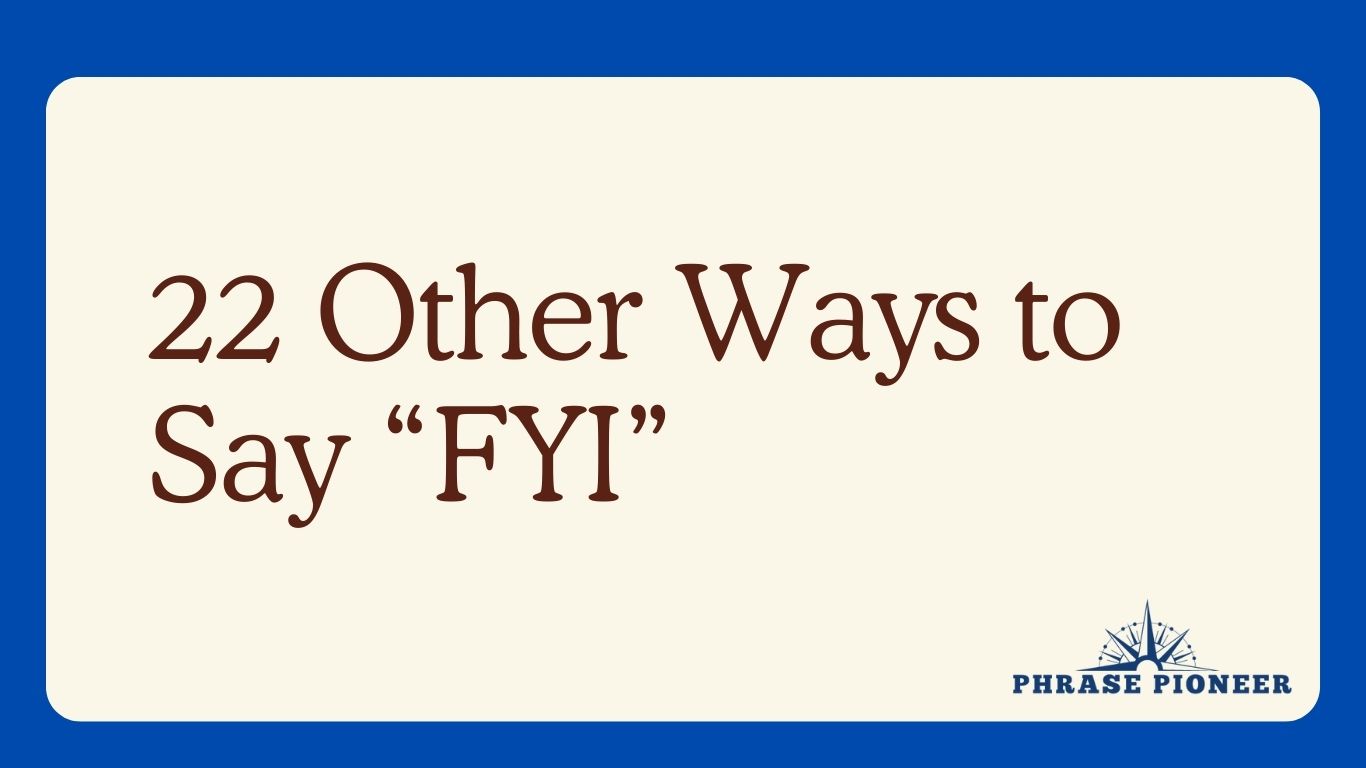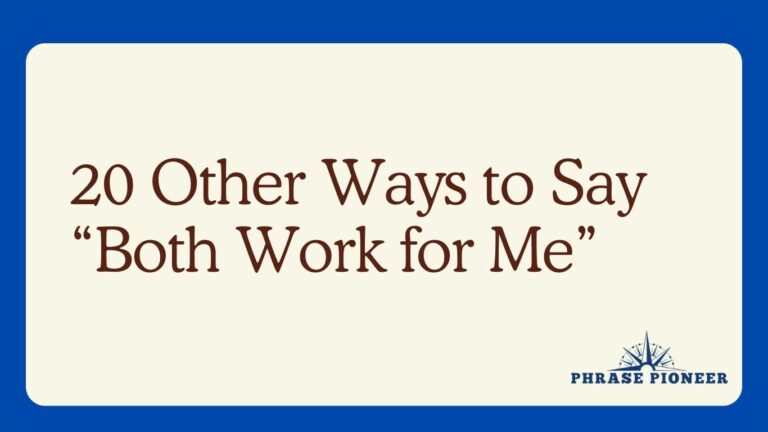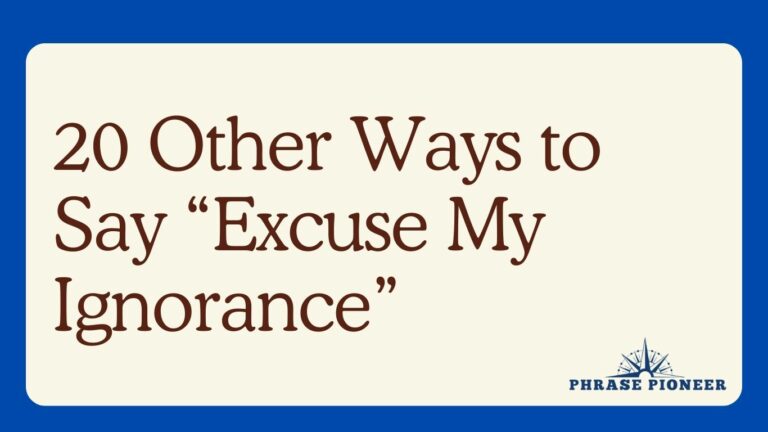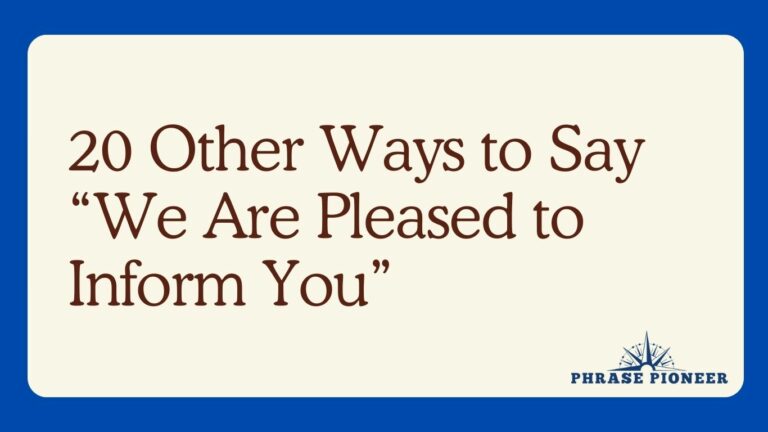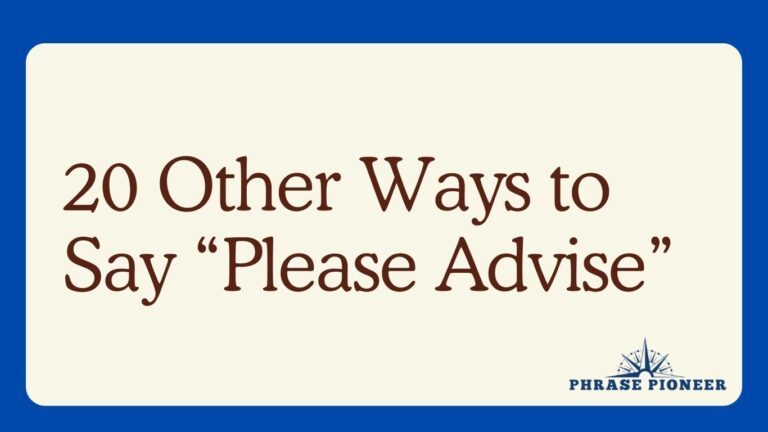22 Other Ways to Say “FYI”
The acronym “FYI,” standing for “For Your Information,” is a common phrase used to flag information as potentially useful or pertinent to the recipient without necessitating an immediate response.
In professional and casual communication alike, there are various ways to convey this sentiment while adding nuance or clarity to the context.
Here are 22 alternative expressions to say “FYI,” each suitable for different scenarios.
Informative Leads
1. For your awareness
- Example: “For your awareness, the meeting time has been changed to 10 AM.”
- Explanation: This is a formal way to draw attention to information deemed important for the recipient to be aware of.
2. Just so you know
- Example: “Just so you know, the boss praised your work in today’s briefing.”
- Explanation: A casual and conversational way to present information that the listener might find interesting or useful.
Heads-Up Notifications
3. Giving you a heads-up
- Example: “I’m giving you a heads-up; the client may call you for a follow-up.”
- Explanation: This phrase is used to provide advance notice or a warning about something that is going to happen.
4. To keep you in the loop
- Example: “To keep you in the loop, we have updated the project timeline.”
- Explanation: This expression is used when sharing updates with someone to ensure they remain informed about ongoing matters.
Formal Informative Phrases
5. To bring to your attention
- Example: “To bring to your attention, the deadline for reports submission is tomorrow.”
- Explanation: This formal phrase is a polite way of highlighting information that requires the recipient’s notice or action.
6. To inform you
- Example: “To inform you, the board has approved the new policy.”
- Explanation: A straightforward and formal way to convey information, typically in written communication.
Casual Informative Phrases
7. Heads up
- Example: “Heads up, there might be traffic delays due to the parade this afternoon.”
- Explanation: An informal and quick way to alert someone about something that could affect them.
8. So you’re aware
- Example: “So you’re aware, the office will be closed next Friday.”
- Explanation: A slightly more casual version of “for your awareness,” used to bring something to light without formality.
Contextual Cues
9. A little bird told me
- Example: “A little bird told me you got the promotion—congratulations!”
- Explanation: An idiomatic and playful way to share information that you’ve heard from another source, often used in personal conversations.
10. Worth mentioning
- Example: “It’s worth mentioning that the client has some concerns about the design.”
- Explanation: Used to highlight information that might not be the main topic of discussion but is still significant.
Professional Contexts
11. As an FYI
- Example: “As an FYI, the CEO will visit our department next week.”
- Explanation: A professional approach to “FYI,” adding a touch of formality to the information being shared.
12. You might like to know
- Example: “You might like to know that the software update has been scheduled for the weekend.”
- Explanation: A polite way of conveying information that assumes the recipient will find it useful or pleasing.
Notifications of Minor Importance
13. By the way
- Example: “By the way, I left the files you needed on your desk.”
- Explanation: An offhand remark to convey information that is secondary to the primary message.
14. Incidentally
- Example: “Incidentally, your article was referenced in today’s meeting.”
- Explanation: Used to share information casually that is not the main focus but might be of interest or relevance.
Clarifying Notes
15. It should be noted
- Example: “It should be noted that these figures are preliminary and subject to change.”
- Explanation: This expression is used to underscore the importance of a piece of information, often where clarification or caution is warranted.
16. For the record
- Example: “For the record, the decisions made in today’s meeting will not affect current projects.”
- Explanation: Used when you want to make sure that the information provided is officially noted or acknowledged.
Indicating Importance
17. It might interest you to know
- Example: “It might interest you to know that the investor mentioned your project specifically.”
- Explanation: This phrase suggests that the information is relevant specifically to the recipient’s interests.
18. Take note that
- Example: “Take note that the compliance guidelines have been updated.”
- Explanation: An imperative form used to signal the need to pay particular attention to the information given.
Polite Prefaces
19. If I may
- Example: “If I may, there are some discrepancies in the report that need your attention.”
- Explanation: A polite and respectful way to introduce information or a suggestion, typically used when speaking to someone of higher status or in a formal setting.
20. Allow me to point out
- Example: “Allow me to point out that the meeting venue has been changed to Conference Room B.”
- Explanation: Another polite introduction to information, with an emphasis on the speaker’s intent to be helpful.
Additional Considerate Phrases
21. Not sure if you’ve heard
- Example: “Not sure if you’ve heard, but they’ve finally fixed the coffee machine.”
- Explanation: This phrase is used to share information that the recipient might already know, but you’re mentioning it just in case.
22. This might be of interest
- Example: “This might be of interest: the company is offering additional training sessions next month.”
- Explanation: Suggests that the information is specifically relevant or beneficial to the person’s interests or needs.

